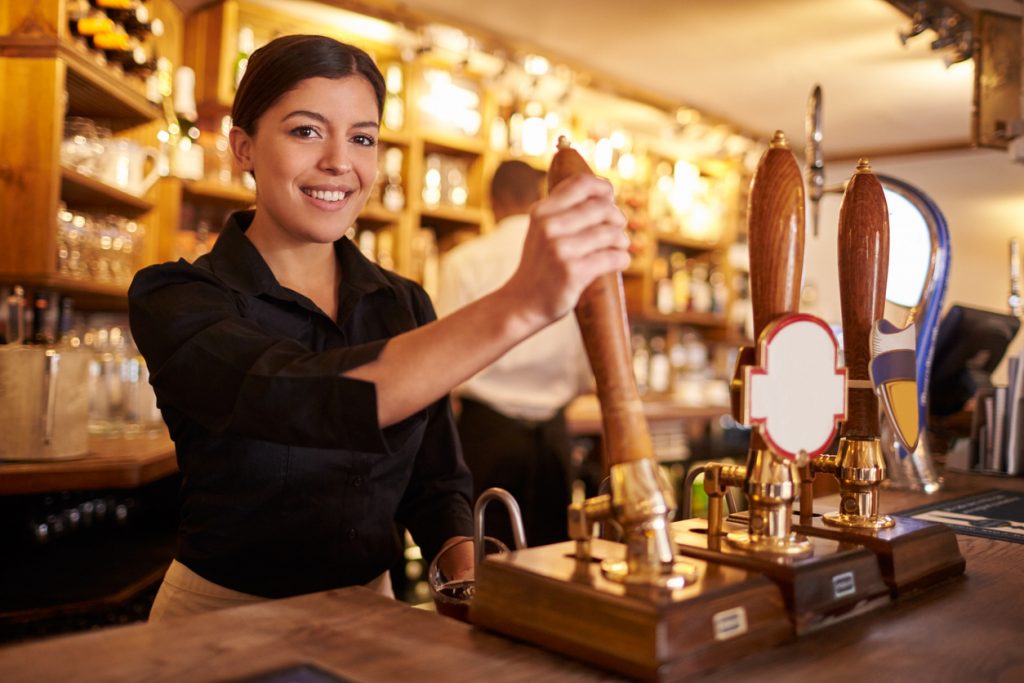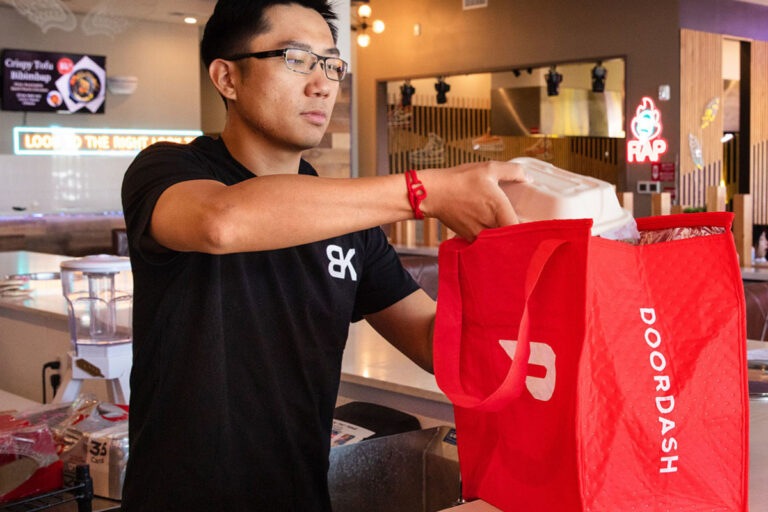
PROPOSITION 126| The restaurant will be able to send up to 2 bottles of wine at home; 12 beers; and a liter of liquor. (Photo/El Comercio Colorado)
BY APPROVING OR DENYING PROPOSITION 126
Sofía Márquez/ El Comercio de Colorado
Haga click aquí para leer la versión en español
The November 8 ballot contains a proposition that could determine the future of Colorado’s large and small restaurant industry. Proposition 126 would allow restaurants and other establishments licensed to sell alcohol to offer alcoholic beverage delivery services at home starting March 1, 2023 using popular home delivery platforms. Voters to decide future of Colorado restaurants.
“My clients will be able to call me so that we can send an order of our ‘tacos plata’ to their house, together with the margaritas that we prepare that they like so much,” said Amelina Bracho, owner of La Tuna Restaurant & Bar in Lakewood. Bracho continued her explanation, “I am excited that, starting in March 2023, our customers will be able to request those orders using the home delivery applications.”
Current restrictions
Bracho and the other owners of licensed alcohol establishments must make these deliveries using vehicles owned by their businesses. Deliveries must be made by your employees who are 21 years of age or older and who have received training. “It is a great economic burden to have our personnel for deliveries. It ceases to be a business to provide that service and becomes a financial burden. It is also a missed opportunity,” said Bracho.
According to current regulations, sales of alcoholic beverages at home cannot represent a percentage greater than 50 percent of the total income of establishments licensed to sell alcohol. “How are we going to provide this service with those restrictions? Since the pandemic began, we have been able to survive thanks to our alliances with delivery platforms. We ask that they stop using them for alcohol deliveries,” she added.
Using delivery platforms
Bracho has no doubt about the effectiveness of this change if it is accepted by the voters. The restaurant owner explained that, “delivery apps would connect us with customers. At the same time, these applications will require that those who make the deliveries be trained to verify that the client is over 21 years of age. At the same time, delivery staff must rule out any deliveries to people intoxicated.”
This restaurant owner highlights that approving Proposition 126 would bring economic benefits to many small and medium-sized businesses and would also have a social impact. “Restaurants, bars, supermarkets, convenience stores, and liquor stores, we are going to consolidate another source of income. At the same time we will be potentially reducing the danger of people buying alcohol and driving while already intoxicated,” she added.

Dissidents
Independent liquor store owners in the state oppose this law change. Some 1,600 liquor stores represented by Keeping Colorado Local believe that passing Proposition 126 will pose a significant risk to their businesses and a threat to continue operating. The liquor stores argue that they are going to lose a significant part of their income. They fear losing sales that would make it difficult to stay open.
If the liquor shops are successful and they vote no on Proposal 126, restaurants are those who should worry. Starting on July 1, 2025, restaurants and bars will no longer be able to carry alcohol home delivery unless current regulations are amended. The alcohol home deliveries business would then be monopolized by liquor shops. The voters will have the last word.
You may also like:
Bennet: “We seek the biggest tax cut for workers”
Venezuelans establish encampment on the banks of the Rio Grande
ArtístiCO presents Fiestas Navideñas: A Christmas Celebration






otras noticias
COVID-19 Affected Individuals Live with its Effects
The gorillas of AMLO
Celebrating the Board of Directors (2024-2025) of the COHCC.